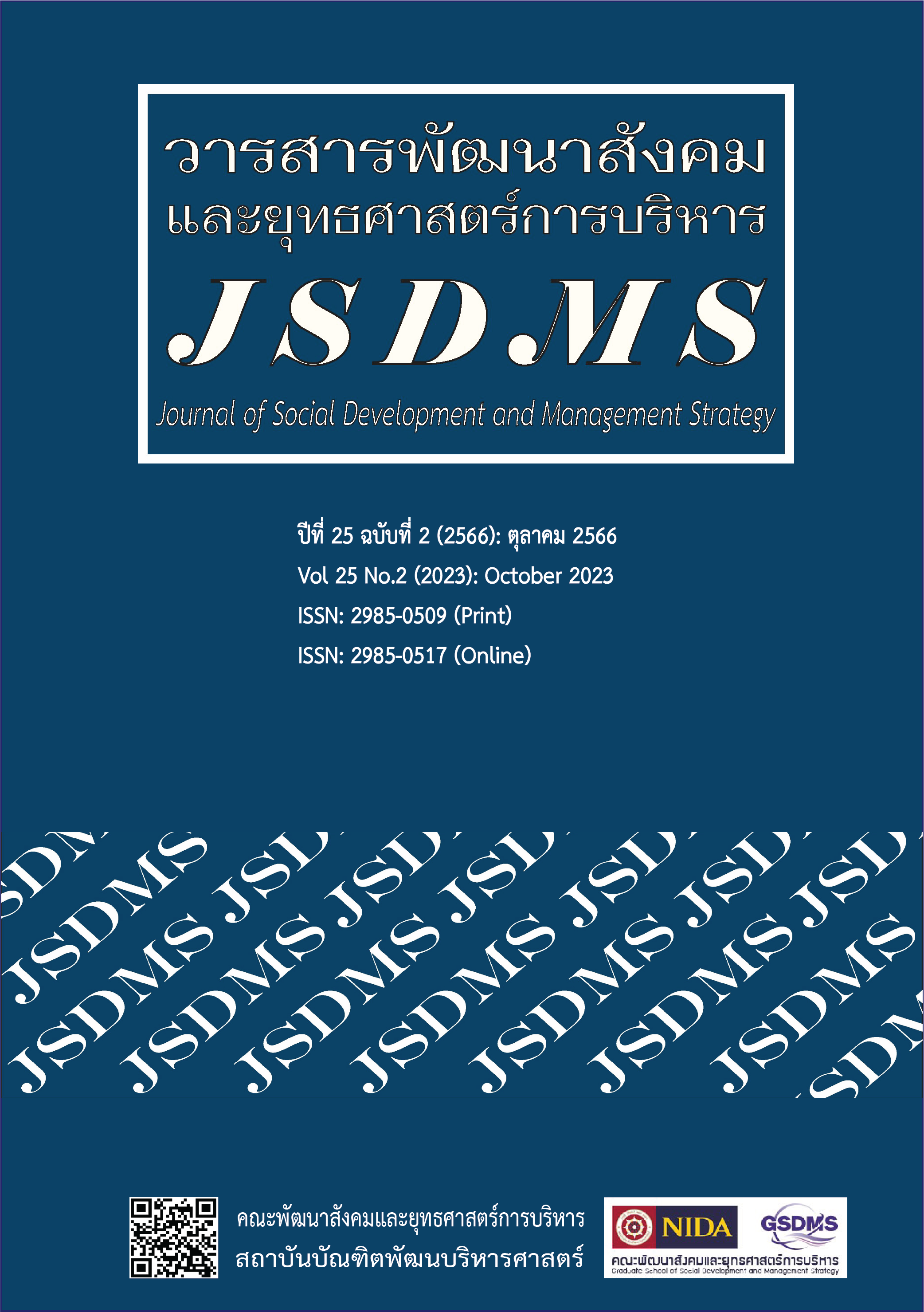Anuttaratham and the Development of Thai Society: A Case Study of Thoed Khunnatham Foundation, Nakhon Ratchasima Province
Main Article Content
Abstract
The objectives of this article are to study the important principle of Anuttaratham of Thoed Khunnatham Foundation in Nakhon Ratchasima Province to promote the development of people in Thai society and to examine the key factors to support the ethical beliefs of Thoed Khunnatham Foundation volunteer groups. This research adopts the qualitative research method, through documented study, participatory observation, and in-depth interviews with 15 key informants. The results are as follows: 1) Human development in Thai society is the principle of social development. Develop people by restoring the original thinking and promote the virtue of gratitude. Encourage and train people to learn the principles of Buddhism, Buddhist scriptures and philosophy of life, provide education for people, and maintain virtue. When people have virtue, they will help their families, communities and society and maintain peace. This has led to the establishment of network partners at the national and international levels, while promoting social development. 2) An important factor leading to the formation of the volunteer team's belief is their interest and openness in learning. People apply the principles and virtues to practice until the results are reflected in themselves, thus forming their belief, and voluntarily joining the Foundation to become volunteers.
Article Details

This work is licensed under a Creative Commons Attribution-NonCommercial-NoDerivatives 4.0 International License.
References
Althusser, L. (1971). Ideology and Ideological State Apparatuses. In Lenin and philosophy and other essays (B. Brewster, Trans.). New York and London: Monthly Review Press.
Foucault, M. (1970). The order of things: An archaeology of the human sciences. New York: Vintage Book. 1973.
Foster, G. M. (1973). Traditional societies and technological change. New York: Harper & Row.
Lacan J. & Sheridan A. (1977). Ecrits: A selection (A. Sheridan, Trans.). New York: W.W. Norton and Company.
Awae Masae. (2012). Community of faith: Guidelines for social development based on religion and local culture in the southern border provinces (Research Report). Bangkok: Faculty of Social and Environmental Development, National Institute of Development Administration.
Nietzsche F. W. & Kaufmann W. (1974). The gay science; with a prelude in rhymes and an appendix of songs. New York: Vintage Books.
Rogers, E. M., & Shoemaker F. F. (1971). Communication of innovations: A cross-cultural approach. (2nd ed.). New York: Free Press.
Supanimit. (2004). The purpose of the preaching. Bangkok: Songserm khunphaph Chiwit.
Supanimit. (n.d.a). Eight faiths. Bangkok: Songserm khunphaph Chiwit.
Supanimit. (n.d.b). Faith leads to manifestation. Bangkok: Songserm khunphaph Chiwit.
Supanimit. (2006.). The power of the way of Anuttara Dharma. Bangkok: Songserm khunphaph Chiwit.
Taiwan Government information Office. (2006). Taiwan yearbook. Retrieved July 10, 2020 from http://www.gio.gov.tw/taiwan-website/5-gp/yearbook/22Religion.htm
WegoVegan Thailand. (2020). Vegetarian and vegan food. Retrieved December 18, 2020 from https://www.youtube.com/channel/UCL4fHuzkBlWJhXoVZaOFrUw


